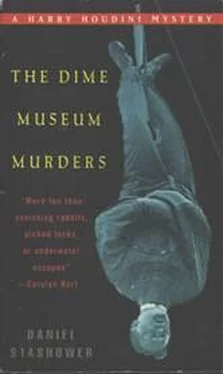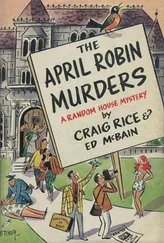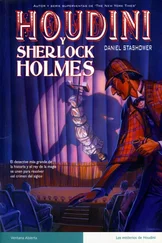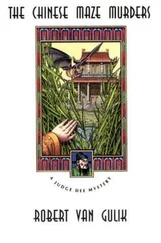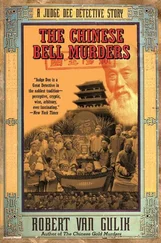
Daniel Stashower
The Dime Museum Murders
The first book in the Harry Houdini Mystery series, 1999

Could it really be that time of the year again? Another Halloween, already? It must be, the old man told himself. There were reporters in the downstairs parlor, and that only happened at Halloween.
How long had it been now? Twenty-seven years? Twenty-eight? Yes, twenty-eight. It hardly seemed possible. Harry had been dead for nearly three decades.
Even now, the old man was particular in matters of dress. He had spent fifty-three minutes polishing his black Riderstone wing-tips that morning, applying a second coat of EverBlack with an oil-soaked chamois, and buffing the stitch-work with his late wife's eyebrow pencil. His best suit, the double-breasted tick-weave, got a vigorous brushing, and his black onyx shirt studs received a last-minute spit-shine. A brisk dousing with Jenkinson's Lime Pomade completed his toilette. On his way downstairs, he paused at the mirror. Not bad for a man of eighty-four. In the old days, they called him "Dash."
Seated in the parlor, he waited quietly for the interview to begin. The photographer, a man named Parker, fussed and clucked over his light meter while the reporter glanced at his notes. Matthews, he said his name was. Call me Jack.
Very little changed about this ritual from year to year. The cameras seemed to get smaller, and the reporters younger, but each interview crept along in the same weary way. One year, there had been a man with a moving picture camera, crouching beneath a black cloth while his hand turned a crank. Another year there had been a recording device with two large spools of silver wire. Matthews, a plump-faced youth with thinning ginger hair, seemed content with the traditional pad of paper and a well-chewed pencil.
Always the same questions* though. Tell us what you remember about your brother, Mr. Hardeen. If your brother were alive today, Mr. Hardeen, what sorts of escapes do you suppose he would be performing? Can you tell us how he made that elephant vanish, Mr. Hardeen?
And every year, come what may, the big wrap-up question: Do you suppose, Mr. Hardeen, that your brother will ever make good on his promise to send a message from the spirit world?
He had not yet made up his mind how to play the interview this year. For a few moments he considered reprising his Wily Codger routine from the year before. This entailed a great deal of thigh-slapping and many repetitions of the phrase "1 kid you not, Sonny Boy…" It played well and traveled wide, bringing a harvest of clips from all over the map-Louisville's Courier-Journal, Toledo's Evening Bee. He couldn't remember them all, but they were in the press book.
Or perhaps he would give them the Wistful Trouper. This involved lengthy patches of misty-eyed reminiscence about gaslit stages, Bertrand's Alum Face Paint, and the great days of the sideshows and dime museums. He had a heartwarming anecdote about Emma Shaller, the Ossified Girl, that could always be counted on for three or four column inches.
Parker, the photographer, was now frowning over a troublesome shadow. The old man folded his legs and ran his hand across his shirt front, checking the red silk handkerchief in his breast pocket. There had been a time, the winter season of 1931-32, when his show traveled with 612 props. Today, he needed only one. Tell me, Mr. Hardeen, the reporter would ask, were you and your brother close at the time of his death? At this, the old man would sit back in his chair as if surprised by the question, and impressed by the reporter's insight. Clearing his throat, he would begin to answer but then stop himself, as though seized by a sudden rush of feeling. He would smile faintly and shake his head at this-such emotion! After so many years!-and clutch at his handkerchief to dab his moistening eyes.
And here was the beauty of the thing. As he plucked the red silk from his pocket, a small metallic object would fall heavily to the floor, perhaps rolling to the reporter's feet. I'm sorry, at my age it's difficult to bend - would you…? The reporter would pick it up. A heavy gold medallion with a strange insignia. Did this belong to your brother, Mr. Hardeen? And the Great Hardeen would fold his hands and allow a wry smile to play across his lips. In a sense, young man.
You see, it's a memento from the very first time that Harry Houdini ever died.
I'm sorry? Well, Mr. Matthews, it's a long story, and I know that you and young Parker want to get back to the city. Maybe some other-?
No? You want to hear it? Well, let's see how much of it I remember. I've never told this story before. In fact, they made us swear an oath on the Wintour family Bible, which was a bit of a laugh, if you must know. The Brothers Houdini, sons of Rabbi Mayer Samuel Weiss, taking a solemn vow on a Bible. But we gave our word and I've held to it. I know Harry did, too. Never even told Bess, so far as I know. Still, there's been a lot of water under the Williamsburg Bridge since then. I read the other day-in the Herald, you'll be gratified to hear-that Lady Wycliffe has finally passed. The last great society hostess. Folded her last napkin, you might say. I've kept my mouth shut all these years out of respect for her. She was a fine woman, and she deserved better than that goggle-eyed bastard she-
But I suppose I'm getting ahead of myself. Would you mind drawing those blinds just a bit? My cataracts. The light, it troubles me a bit.
Thank you. Now, gentlemen, you're certain that you'd like to hear about this? You don't-? Very well.
It must have been September, or perhaps October, of 1897. I turned twenty-one that year. Harry would have been twenty-three. My brother was going through a rough time. He'd worked like a dog, but try as he might, he couldn't quite break out of the small time. He was strictly a novelty act-traveling circuses, the midway, that sort of thing. He and I had done an act together from the time we were kids, but that changed when he married Bess. From that point on, she did the act with him and I did the booking and advance work. Truth be told, the duties were pretty light. There wasn't a tremendous demand for appearances by the Great Houdini at that stage, but I was always on hand, behind the scenes. Nowadays you would call me a theatrical agent and pay me a fat commission. Back then, we literally worked for food.
We'd been travelling quite a bit that year-sometimes with the Welsh Brothers Circus, sometimes with the Marco Company. We did all right trailing through such places as Cherokee, Kansas and Woonsocket, Rhode Island, where people seemed grateful for most any form of entertainment. Harry's escape act hadn't quite taken shape yet, but he did a passable magic routine. He fancied himself a master manipulator, and billed himself as the "King of Kards." Bess worked as his assistant, and also pulled an occasional spot as a singer. "The Melodious Little Songster," we called her. She had a wonderful voice and-I don't mind telling you-she was easy on the eyes.
In a travelling show just about everyone takes a turn on stage, and I did my share as a juggler and an acrobat. I also worked as a spotter for the trapeze team, and occasionally I put on a gorilla suit for the "Beasts of All Nations" tableau. I liked circus life. The work suited me and I enjoyed the travel and the small towns, which reminded me of my boyhood in Wisconsin. If not for my brother, I might well have spent the rest of my working life touring the sticks. Even my modest talents were sufficient to earn a living. Nobody ever got famous working town fairs and medicine shows, but nobody ever worked himself into an early grave either.
Читать дальше
